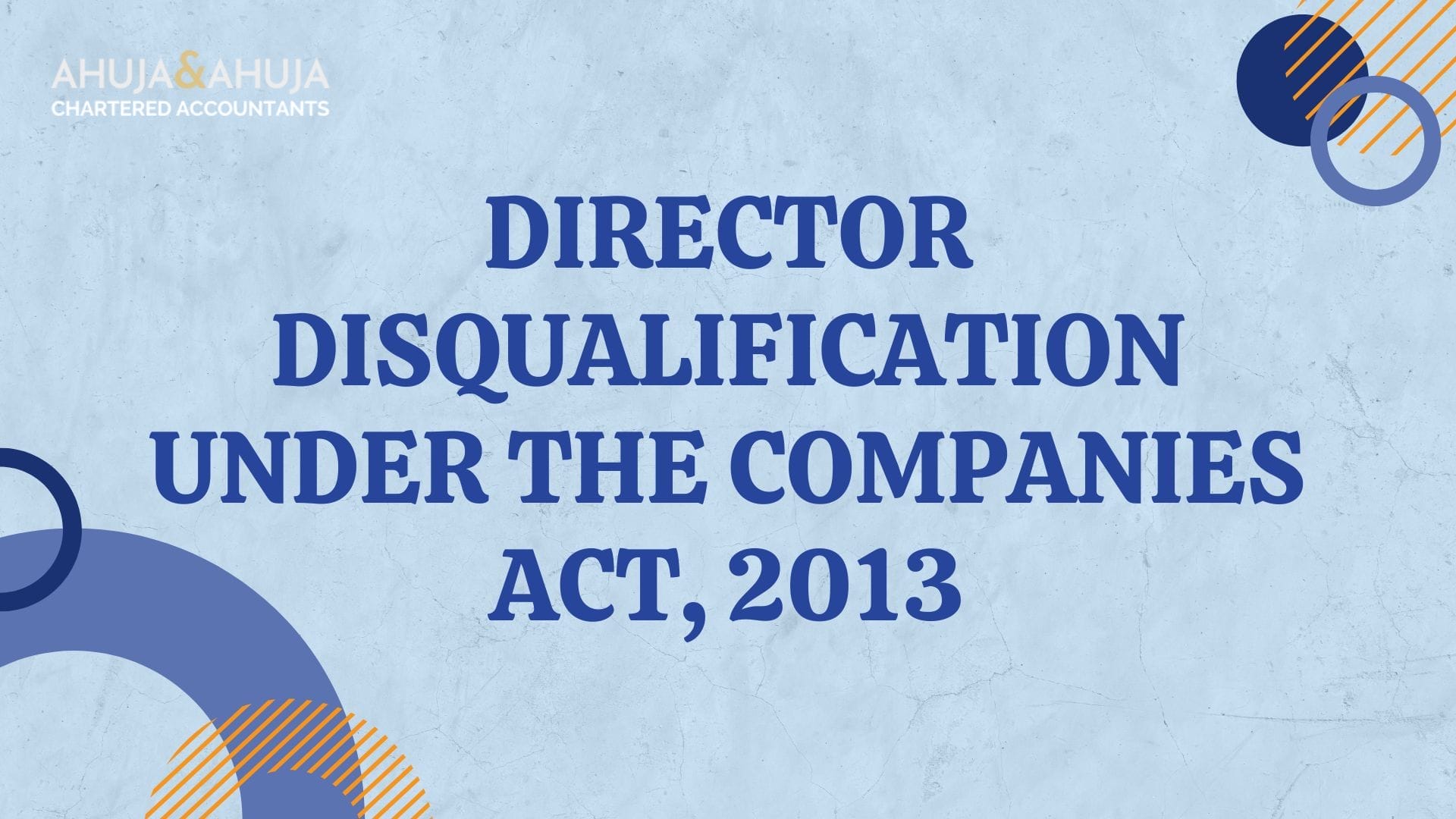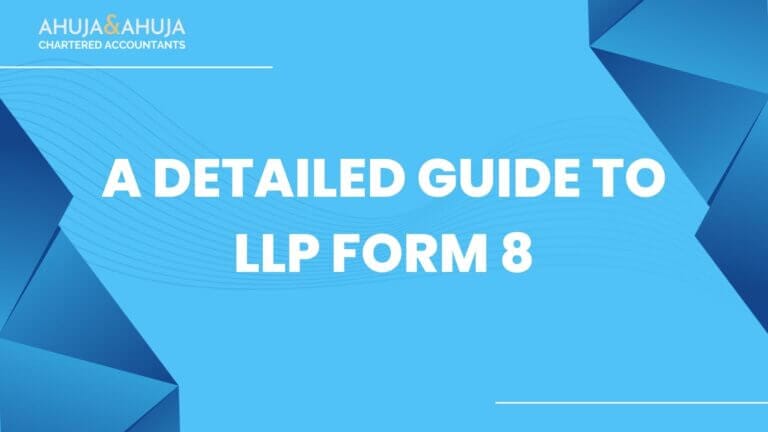An In-Depth Analysis of Director Disqualification under the Companies Act, 2013
In the realm of business, the effective stewardship of a company hinges significantly on the directors at its helm. Directors function as the guiding force, making key decisions that shape the direction in which the company sails. Ensuring that directors are individuals of competence and probity is crucial for smooth corporate governance and to uphold stakeholder trust. This brings forth the importance of the guidelines stipulated under the Companies Act, 2013 that play an instrumental role in maintaining the integrity of the Indian corporate ecosystem.
One aspect that demands attention under the Companies Act, 2013, is the context of Director Disqualification. This provision serves as a robust safeguard, instilling accountability, and moral responsibility among those occupying the pivotal role of a company director. In this article, we aim to explore this concept comprehensively with a focus on the grounds for disqualification, implications, and available remedies for directors upon disqualification.
Landmarks in the Legal Framework: Grounds for Disqualification
At the core of disqualification are several pivotal reasons codified within Section 164 of the Companies Act, 2013. These reasons are framed to ensure that only individuals who are fit and proper can serve as directors and align with the law’s intent of protecting the company’s and its stakeholders’ interests.
- Mental Capacity: First and foremost, any individual declared to be of unsound mind by a competent court is deemed unfit to hold the directorship position. The legal system takes a protective stance here, ensuring that directors are capable of making decisions that require sharp intellect and sound judgment.
- Insolvency: An individual who is insolvent or has filed an application for insolvency and is awaiting verdict also faces disqualification. Solvency demonstrates financial stability, an essential trait for those managing the finances and strategic investments of a company.
- Criminal Convictions: The statute explicitly bars individuals convicted by a court of any offence and imprisoned for not less than six months. Moreover, a heftier sentence of seven years or more unequivocally prohibits one from boardroom re-entry at any company, stressing the significance of legal compliance and ethical conduct.
- Authority’s Verdict: If an existing court or tribunal has passed an order disqualifying an individual from holding office, adherence to this judgment is not just legal compliance but a testament to the rigor of judiciary processes in corporate oversight.
- Financial Irresponsibility: A failure to clear financial obligations towards the company, as evidenced by not paying for shares and letting six months elapse from the due payment date, underlines potential disregard for financial duties, thus warranting disqualification.
- Offences in Related-Party Transactions: With strict governance on related-party dealings to prevent conflicts of interest and fraud, conviction for related offences within the last five years is a substantial ground for disqualification.
- Regulatory Compliance: Lastly, directors must possess an authorized Director Identification Number (DIN). This unique identification serves as a means of tracking and affirming the accountability of a director’s actions. Non-compliance with this administrative requirement leads to disqualification.
By weaving these grounds into the legislative fabric, the Companies Act aims to uphold corporate governance and deter malfeasance. It’s this precision in the Act that aids in fostering a transparent, reliable, and efficient business environment, pivotal for both domestic and international confidence in Indian businesses.
The Wider Repercussions: Implications of Disqualification
The aftermath of director disqualification stretches far and wide, not only impacting the individual but resonating through the corporate structure they were once an integral part of. The law is unequivocal — a disqualified director becomes ineligible to be reappointed or appointed in any company for five years from the date of disqualification. This rigorous approach reflects the Act’s intent to preserve the integrity of corporate management roles.
A director’s disqualification carries significant professional stigma and can impede one’s future opportunities. It’s a public declaration of a past failure to adhere to the requisite legal and ethical standards expected of the position.
Furthermore, the stringent enforcement adopted by the Ministry of Corporate Affairs (MCA) since 2017, including the publication of disqualified directors’ names, has set a precedent for transparency and accountability. With these names in the public domain, companies are more vigilant in their appointments, and the disqualified individuals bear the repercussions of reduced trust and credibility.
It’s a cautionary tale that reinforces the ideology that directorship is not a position to be taken lightly — it’s a post of responsibility, where every action or inaction holds considerable weight.
Navigating the Legal Quagmire: Remedies against Disqualification
Even with the stringent laws in place, the architecture of the Companies Act, 2013 does offer recourse for those directors who find themselves disqualified. While the circumstances leading to disqualification are serious, the law also provides a fair chance for the individuals to appeal the decision based on the underlying principle of natural justice.
Should a director be disqualified, one of the primary legal remedies is to petition the National Company Law Appellate Tribunal (NCLAT). The process of appeal is a critical tool for directors to potentially reverse or stay the disqualification if there are sufficient grounds to suggest an error in the application of the law, mitigating circumstances, or an unjust decision.
A notable facility within this framework is the provision to request a stay order. According to the Act, a disqualification order does not take immediate effect — there is a grace period of 30 days. In this time, a disqualified director has the liberty to file an appeal with the NCLAT. On doing so, the director’s status stays unchanged for the next seven days, during which time they can settle the annual returns or fulfill other obligations that could potentially influence the outcome of their appeal.
However, in the absence of a reappointment procedure for a disqualified director in the Act, individuals must wait until the completion of the five-year disqualification period before they can once again become eligible for directorship in any company.
This remedy not only underscores the importance of compliance with corporate governance but offers a retrial if fairness calls for it, thereby reinforcing that the law is robust yet just.
Dispelling Doubts: Frequently Asked Questions on Director Disqualification
In the intricate tapestry of company law, director disqualification raises numerous questions. Below are responses to some of the most common queries that provide clarity on the subject:
Can a disqualified director be reappointed during the disqualification period?
No, a disqualified director cannot be reappointed as a director in any company during the disqualification period of five years. Such individuals must wait until this duration expires to be eligible for a directorship position again.
What are the consequences if an appeal at the NCLAT against disqualification is unsuccessful?
If an appeal at the NCLAT does not result in a favorable outcome for the disqualified director, the original disqualification order stands as is. The director remains disqualified for the specified period unless any further legal recourse is availed and succeeds.
Are there any exceptions to the disqualification rules under the Companies Act 2013?
The Act does not explicitly provide ‘exceptions’ per se to the disqualification rules. However, the circumstances leading to disqualification are specific, and if a director’s situation does not align with those grounds, disqualification can be appealed and potentially overturned.
What is the significance of publishing disqualified directors’ names by the MCA?
The MCA publishes the names of disqualified directors to maintain transparency and uphold corporate governance. It serves as a cautionary measure for other companies and stakeholders and reaffirms the responsible nature of directorship roles.
Epilogue: Director Disqualification – Protecting Integrity in Indian Corporation
As we draw the curtains on our exploration of director disqualification, we emphasize that the provisions enshrined in the Companies Act, 2013 serve as critical checks to safeguard the integrity of corporate India. The law judiciously outlines the scenarios wherein a director faces disqualification, ensuring that only those who exhibit financial responsibility, ethical behavior, and adhere to the legal norms steer the corporate ship.
The implications of disqualification are profound, not only placing personal constraints on the director but also signaling to the market that malpractices in governance will not be tolerated. Reflecting on the remedies, while the road to overturn a disqualification is arduous, the avenue for due legal process mirrors the law’s fairness.
In a broader perspective, director disqualification underscores the commitment of the Indian legal system to enforce accountability in business operations. It is this commitment that enhances investor trust, protects stakeholder interests, and maintains a level playing field for all businesses.
The ripples of this discussion extend beyond legal mandates; they are a reminder of the ethical bedrock required for the flourishing of companies and by extension, economies. Directors carry not just statutory obligations but the mantle of corporate stewardship — a role significant for the future of commerce and industry in India and beyond.
Disclaimer
The materials provided herein are solely for educational and informational purposes. No attorney/professional-client relationship is created when you access or use the site or the materials. The information presented on this site does not constitute legal or professional advice and should not be relied upon for such purposes or used as a substitute for professional or legal advice.







